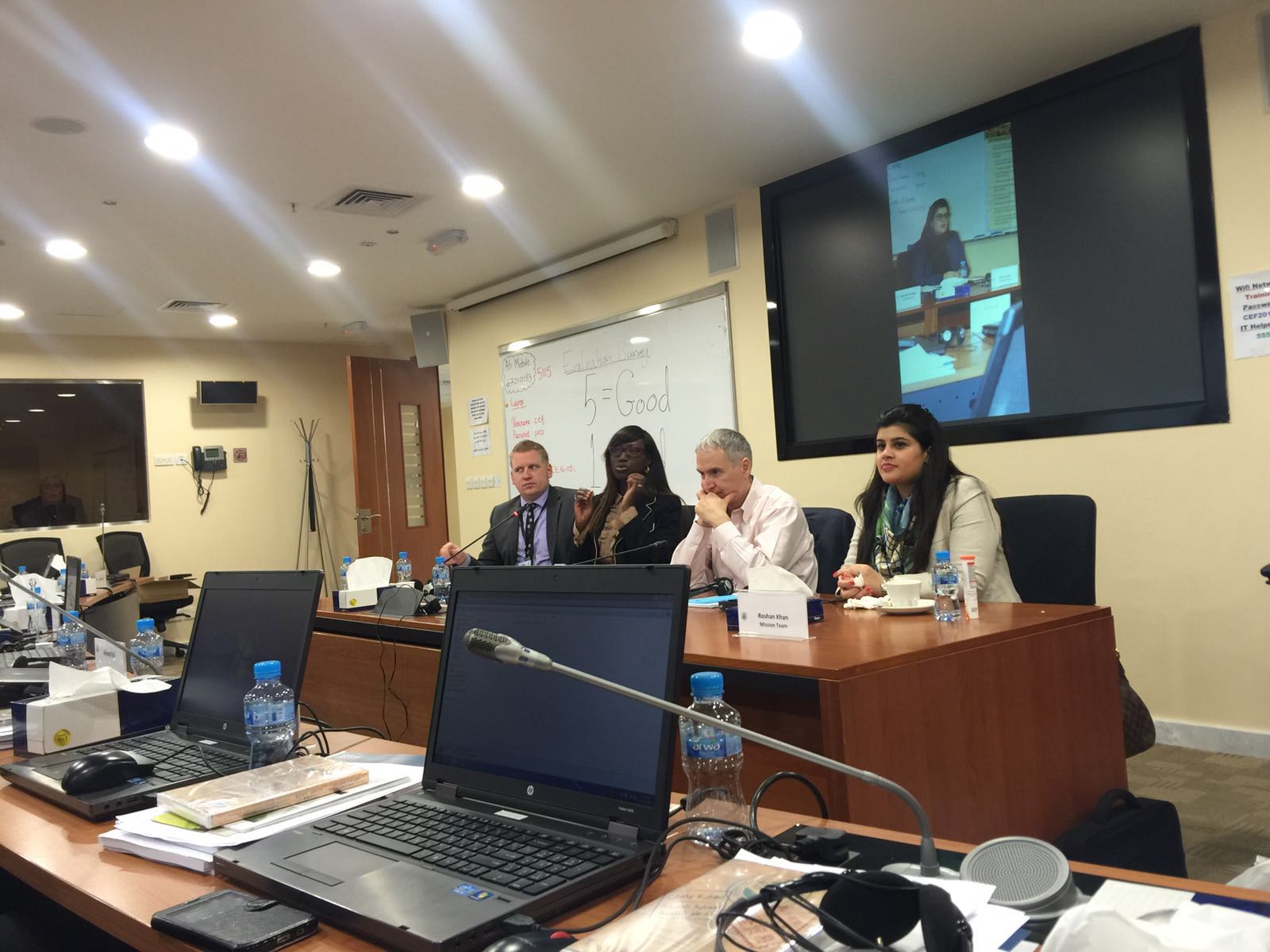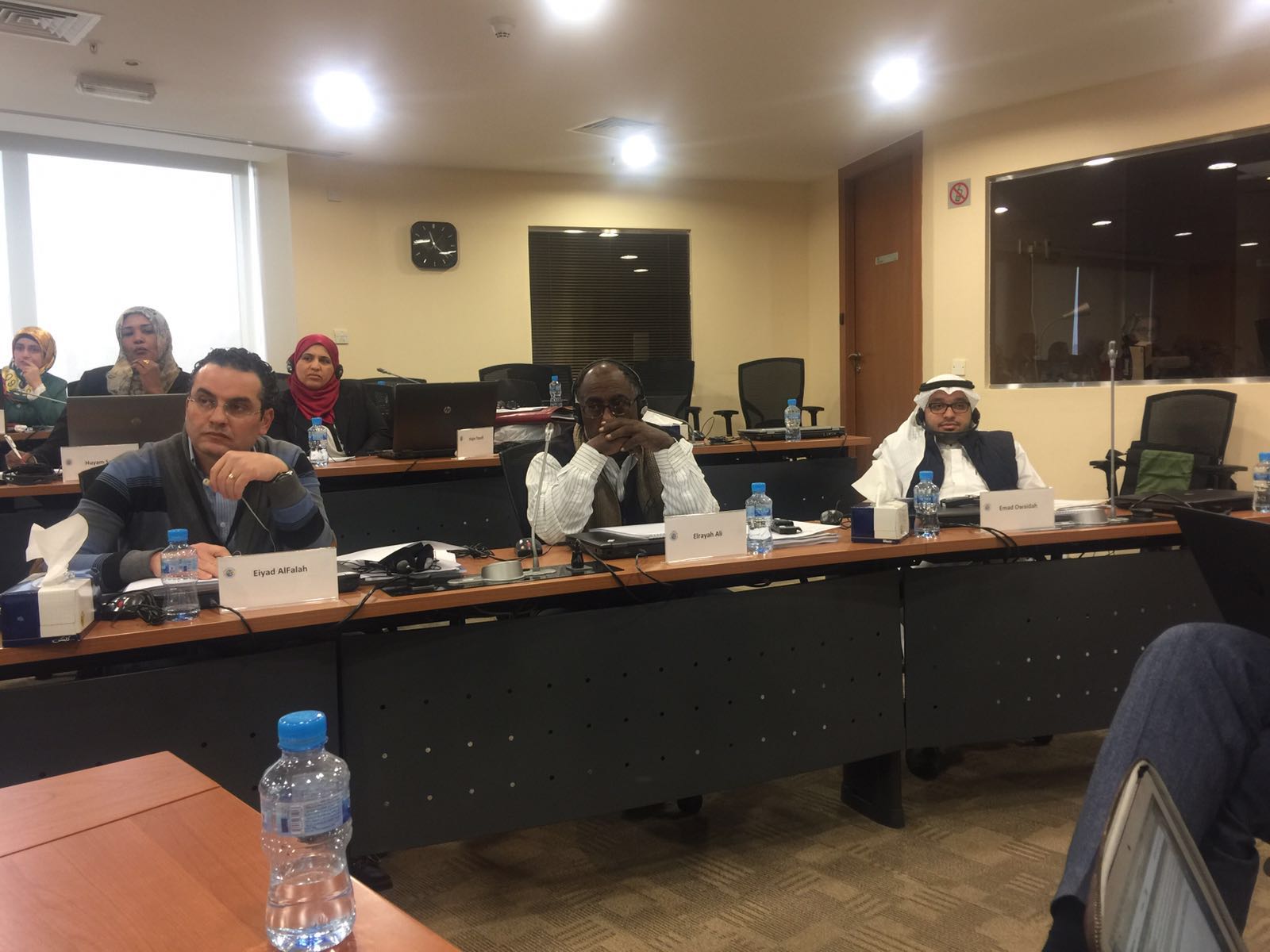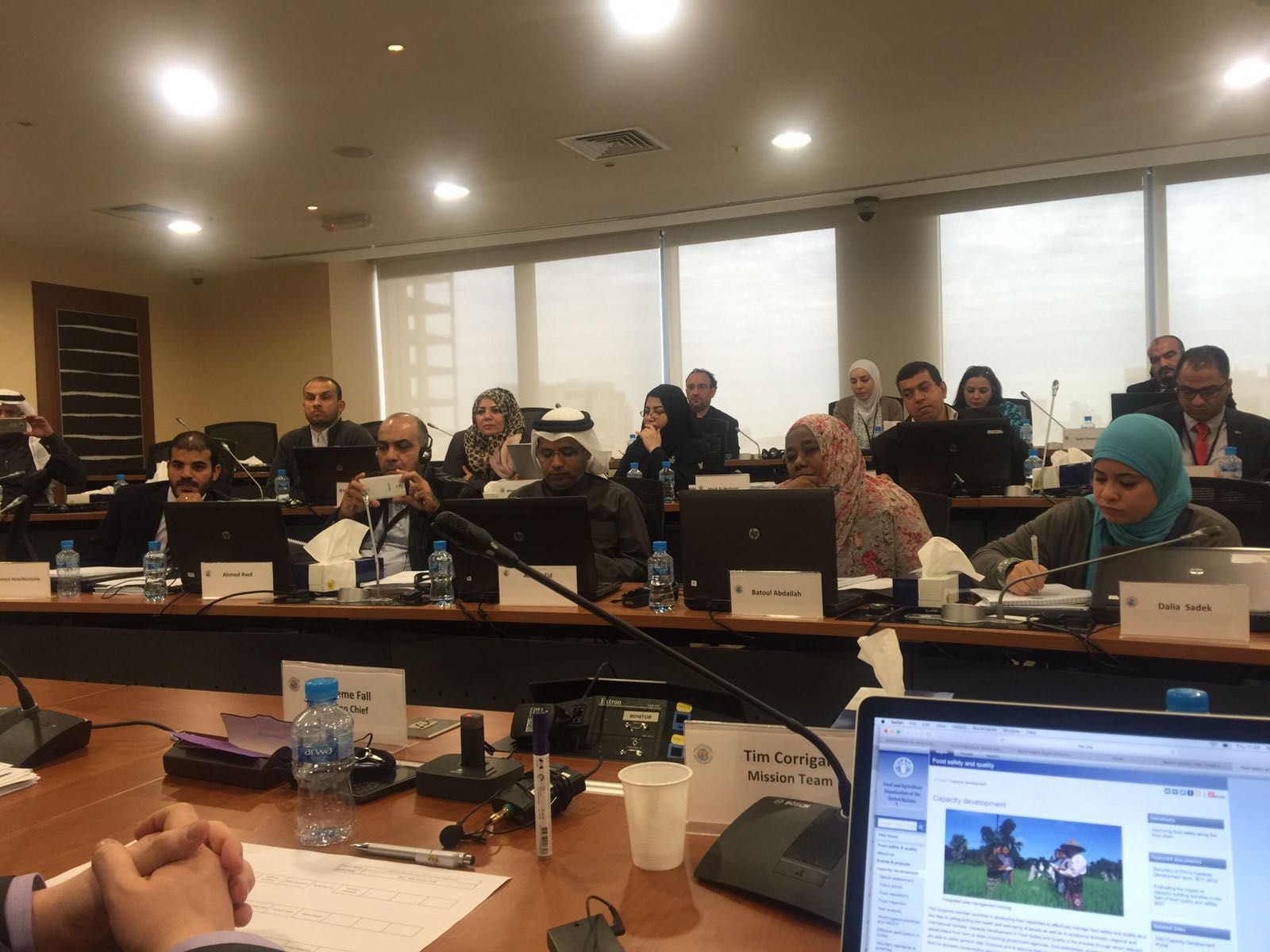Kuwait - WTO Workshop on Sanitary and Phytosanitary Measures
A Regional Workshop on the WTO Agreement on the Application of Sanitary and Phytosanitary Measures for the Arab Region took place earlier this week in Kuwait.
Members from Egypt, Jordan, Kuwait, Lebanon, Saudi Arabia, Syria, Sudan, Tunisia and UAE participated in this training touching upon all aspects of the implementation of the Sanitary and Phytosanitary (SPS) agreement.
Codex Secretary Tom Heilandt was part of the mission team composed of WTO staff and trainers from the two other international standard setting organisations organisations mentioned in the agreement - IPPC and OIE.
Practical issues of importance to the region
After initial lectures and discussions the participants had a one day breakout session - the largest being on Codex, where they were introduced in detail to Codex work and had time to discuss practical issues. Items that came up were energy drinks and alcohol; GM labelling; hormones in milk and meat; lack of laboratory capacity to control standards implementation; what to do when a Codex limit does not exist; and how to set up a functioning food law and food control system.
Regional participation
Tom Heilandt called upon the countries to actively participate in Codex and in the regional coordinating committee for the Near East to be able to effectively influence the work of Codex to ensure that their rights and needs as huge importing countries are taken into account.
Photos from Workshop


Photo credit
©Tom Heilandt
At the heart of the Codex mandate are the core values of collaboration, inclusiveness, consensus building and transparency. Governmental and non-governmental, public and private organizations alike play a vital role in ensuring Codex texts are of the highest quality and based on sound science.
Codex would have little authority in the field of international standard setting if it did not welcome and acknowledge the valuable contributions made by observers. Expert technical bodies, industry and consumer associations
contribute to the standard-setting process in a spirit of openness, collaboration and transparency.
Intergovernmental organizations (IGOs) and international non-governmental organizations (NGOs) can apply for observer status in Codex in order to attend and put forward their views at every stage of the standard-setting process.
 Current Codex Alimentarius Commission
Current Codex Alimentarius Commission
Kuwait - WTO Workshop on Sanitary and Phytosanitary Measures
A Regional Workshop on the WTO Agreement on the Application of Sanitary and Phytosanitary Measures for the Arab Region took place earlier this week in Kuwait.
Members from Egypt, Jordan, Kuwait, Lebanon, Saudi Arabia, Syria, Sudan, Tunisia and UAE participated in this training touching upon all aspects of the implementation of the Sanitary and Phytosanitary (SPS) agreement.
Codex Secretary Tom Heilandt was part of the mission team composed of WTO staff and trainers from the two other international standard setting organisations organisations mentioned in the agreement - IPPC and OIE.
Practical issues of importance to the region
After initial lectures and discussions the participants had a one day breakout session - the largest being on Codex, where they were introduced in detail to Codex work and had time to discuss practical issues. Items that came up were energy drinks and alcohol; GM labelling; hormones in milk and meat; lack of laboratory capacity to control standards implementation; what to do when a Codex limit does not exist; and how to set up a functioning food law and food control system.
Regional participation
Tom Heilandt called upon the countries to actively participate in Codex and in the regional coordinating committee for the Near East to be able to effectively influence the work of Codex to ensure that their rights and needs as huge importing countries are taken into account.
Photos from Workshop


Photo credit
©Tom Heilandt
 Codex and Observer
Codex and Observer
around the world since ancient times.
We might not always know where it comes from,
but we expect it to be available, safe and of good quality.











Leave a comment